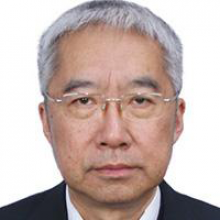You are here
China's response to de-coupling
Jul 03,2023 - Last updated at Jul 03,2023
BEIJING — Before Deng Xiaoping launched China’s reform and opening up, the People’s Republic was working to establish a self-sufficient economy. But after decades of integration into the global economy, autarky certainly is no longer an option.
While China’s participation in global value chains boosted the economy’s efficiency and technological capabilities, it also caused its industrial system to become more fragmentated and vulnerable to external shocks.
In recent years, the United States has expanded the scope of sanctions on Chinese firms, such as by placing 603 Chinese persons on its so-called Entity List, blacklisting them on national-security grounds. These entities’ suppliers can no longer sell them US technology without a difficult-to-obtain permit.
US National Security Adviser Jake Sullivan says that these measures do not amount to a “technology blockade”. But that claim is dubious. While national security is a legitimate concern for any country, it is difficult, or impossible, to decide whether many supply chains, or segments of supply chains, have security implications or not. The concept of national security can be easily abused to violate World Trade Organisation provisions. Furthermore, should politicians who may face protectionist pressure by domestic incumbents really be entrusted with making such distinctions?
China has responded to Western antagonism by embracing a new development strategy. In 2020, after decades of “great international circulation”, a strategy of pursuing economic growth and development through export-oriented production, China announced that it would adopt a “dual-circulation” strategy. This means that, while China will continue to engage with global markets and supply chains, it will rely on domestic markets rather than external demand to drive economic growth.
More recently, the Chinese government proclaimed that China should build a comprehensive, advanced and secure industrial system. Reemphasising the importance of comprehensiveness is a reaction to the new geopolitical reality. While China cannot and should not produce everything, autarky is impossible for a modern economy, it should be able to quickly launch or increase production of critical goods, as needed. In other words, China must increase its industrial system’s adaptability. The more adaptable the system is, the less comprehensive it needs to be, and the less efficiency it must sacrifice, to deliver the same level of security.
Even if the geopolitical situation deteriorates further, China cannot disengage fully from global supply chains, at least not without paying a heavy price. But the same is true of the West, which may be tempted by the idea of forcing China out. Just as Chinese industry would suffer massively from the economy’s isolation, so would Western businesses.
The Institute of World Economics and Politics, a Chinese government think tank, reports that China ranked among the world’s top three exporters (by volume) in 2,400 of 4,000 categories of intermediate goods traded globally between 2017 and 2020. China also ranked at least third in 800 of 1,001 categories of intermediate goods with a high degree of centrality to finished goods.
According to a 2020 report by the United Nations Conference on Trade and Development, approximately 20 per cent of global trade in intermediate goods for manufacturing came from China. If China’s intermediate-goods exports declined by two percentage points, total global exports would decrease by approximately $50 billion, with Europe, the US, Japan, South Korea and Taiwan (China) most heavily affected.
It is obvious that the Biden Administration is still committed to hampering China’s economic and technological development, even at the cost of US economic and commercial interests. The result will be a Pyrrhic victory for the US, at best.
While the US can slow China’s technical progress, it is too late to stop it. In fact, China has established a very comprehensive and adaptable modern economy featuring a formidable manufacturing sector. According to the UN’s industrial classification, China is the only country with all manufacturing goods at all levels of sections, subsections, groups, subgroups, classes, and subclasses of industry. Given China’s manufacturing capacity, market scale, and abundant human resources, no sanctions will prevent China from eventually making its own high-tech products, such as chips.
In a recent speech, US Treasury Secretary Janet L. Yellen struck a more positive note. She pointed out that, like an economy, America’s relationship with China “is just an aggregate of choices that people make”, and that the relationship’s trajectory “is not preordained, and it is not destined to be costly”. Rather, it will be determined by countless choices, including “when to cooperate, when to compete, and when to recognise that even amid our competition, we have a shared interest in peace and prosperity”.
Those are wise words. I couldn’t agree more.
Yu Yongding, a former president of the China Society of World Economics and director of the Institute of World Economics and Politics at the Chinese Academy of Social Sciences, served on the Monetary Policy Committee of the People’s Bank of China from 2004 to 2006. Copyright: Project Syndicate, 2023. www.project-syndicate.org













